Feng-Feng Wei
CEC: Crowdsourcing-based Evolutionary Computation for Distributed Optimization
Apr 12, 2023Abstract:Crowdsourcing is an emerging computing paradigm that takes advantage of the intelligence of a crowd to solve complex problems effectively. Besides collecting and processing data, it is also a great demand for the crowd to conduct optimization. Inspired by this, this paper intends to introduce crowdsourcing into evolutionary computation (EC) to propose a crowdsourcing-based evolutionary computation (CEC) paradigm for distributed optimization. EC is helpful for optimization tasks of crowdsourcing and in turn, crowdsourcing can break the spatial limitation of EC for large-scale distributed optimization. Therefore, this paper firstly introduces the paradigm of crowdsourcing-based distributed optimization. Then, CEC is elaborated. CEC performs optimization based on a server and a group of workers, in which the server dispatches a large task to workers. Workers search for promising solutions through EC optimizers and cooperate with connected neighbors. To eliminate uncertainties brought by the heterogeneity of worker behaviors and devices, the server adopts the competitive ranking and uncertainty detection strategy to guide the cooperation of workers. To illustrate the satisfactory performance of CEC, a crowdsourcing-based swarm optimizer is implemented as an example for extensive experiments. Comparison results on benchmark functions and a distributed clustering optimization problem demonstrate the potential applications of CEC.
A Survey on Distributed Evolutionary Computation
Apr 12, 2023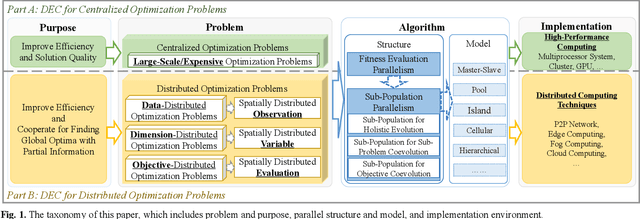
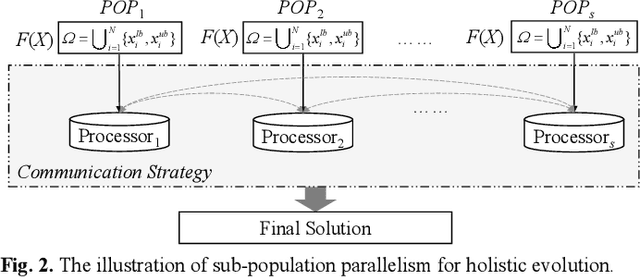
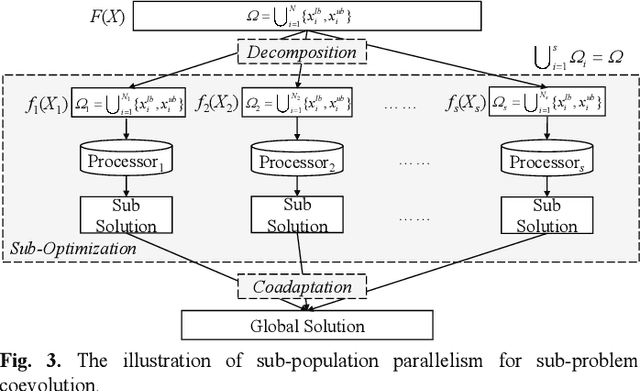
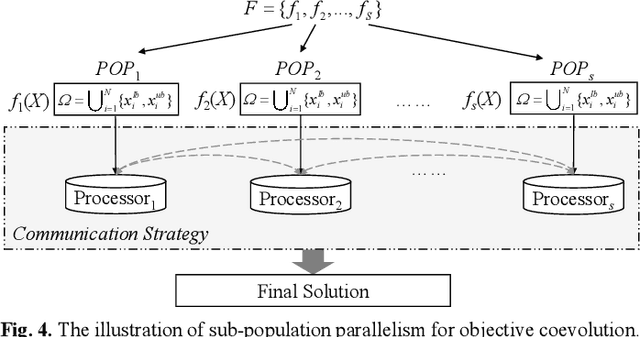
Abstract:The rapid development of parallel and distributed computing paradigms has brought about great revolution in computing. Thanks to the intrinsic parallelism of evolutionary computation (EC), it is natural to implement EC on parallel and distributed computing systems. On the one hand, the computing power provided by parallel computing systems can significantly improve the efficiency and scalability of EC. On the other hand, data are collected and processed in a distributed manner, which brings a novel development direction and new challenges to EC. In this paper, we intend to give a systematic review on distributed EC (DEC). First, a new taxonomy for DEC is proposed from top design mechanism to bottom implementation mechanism. Based on this taxonomy, existing studies on DEC are reviewed in terms of purpose, parallel structure of the algorithm, parallel model for implementation, and the implementation environment. Second, we clarify two major purposes of DEC, i.e., improving efficiency through parallel processing for centralized optimization and cooperating distributed individuals/sub-populations with partial information to perform distributed optimization. Third, noting that the latter purpose of DEC is an emerging and attractive trend for EC with the booming of spatially distributed paradigms, this paper gives a systematic definition of the distributed optimization and classifies it into dimension distributed-, data distributed-, and objective distributed-optimization problems. Formal formulations for these problems are provided and various DEC studies on these problems are reviewed. We also discuss challenges and potential research directions, aiming to enlighten the design of DEC and pave the way for future developments.
Evolution as a Service: A Privacy-Preserving Genetic Algorithm for Combinatorial Optimization
May 27, 2022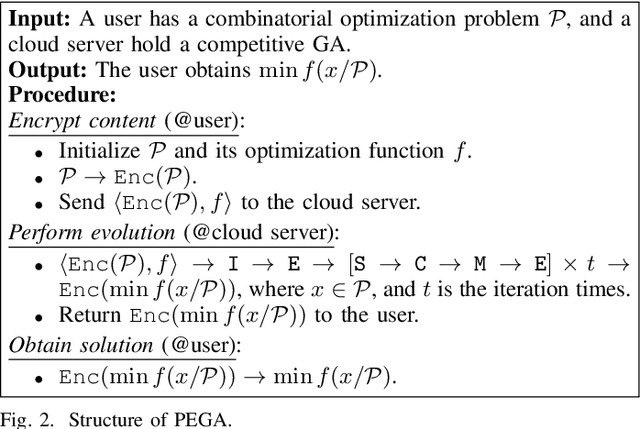
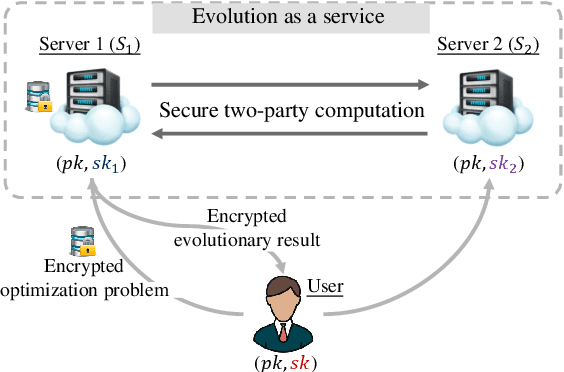

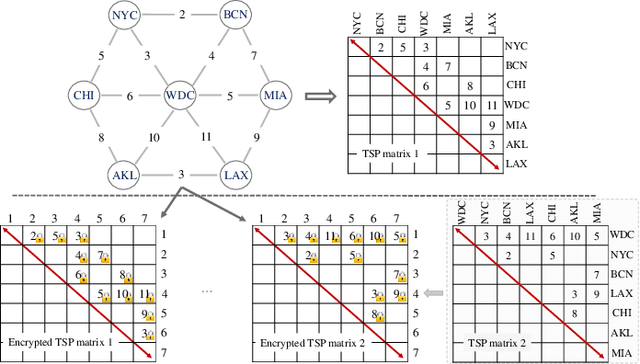
Abstract:Evolutionary algorithms (EAs), such as the genetic algorithm (GA), offer an elegant way to handle combinatorial optimization problems (COPs). However, limited by expertise and resources, most users do not have enough capability to implement EAs to solve COPs. An intuitive and promising solution is to outsource evolutionary operations to a cloud server, whilst it suffers from privacy concerns. To this end, this paper proposes a novel computing paradigm, evolution as a service (EaaS), where a cloud server renders evolutionary computation services for users without sacrificing users' privacy. Inspired by the idea of EaaS, this paper designs PEGA, a novel privacy-preserving GA for COPs. Specifically, PEGA enables users outsourcing COPs to the cloud server holding a competitive GA and approximating the optimal solution in a privacy-preserving manner. PEGA features the following characteristics. First, any user without expertise and enough resources can solve her COPs. Second, PEGA does not leak contents of optimization problems, i.e., users' privacy. Third, PEGA has the same capability as the conventional GA to approximate the optimal solution. We implements PEGA falling in a twin-server architecture and evaluates it in the traveling salesman problem (TSP, a widely known COP). Particularly, we utilize encryption cryptography to protect users' privacy and carefully design a suit of secure computing protocols to support evolutionary operators of GA on encrypted data. Privacy analysis demonstrates that PEGA does not disclose the contents of the COP to the cloud server. Experimental evaluation results on four TSP datasets show that PEGA is as effective as the conventional GA in approximating the optimal solution.
 Add to Chrome
Add to Chrome Add to Firefox
Add to Firefox Add to Edge
Add to Edge